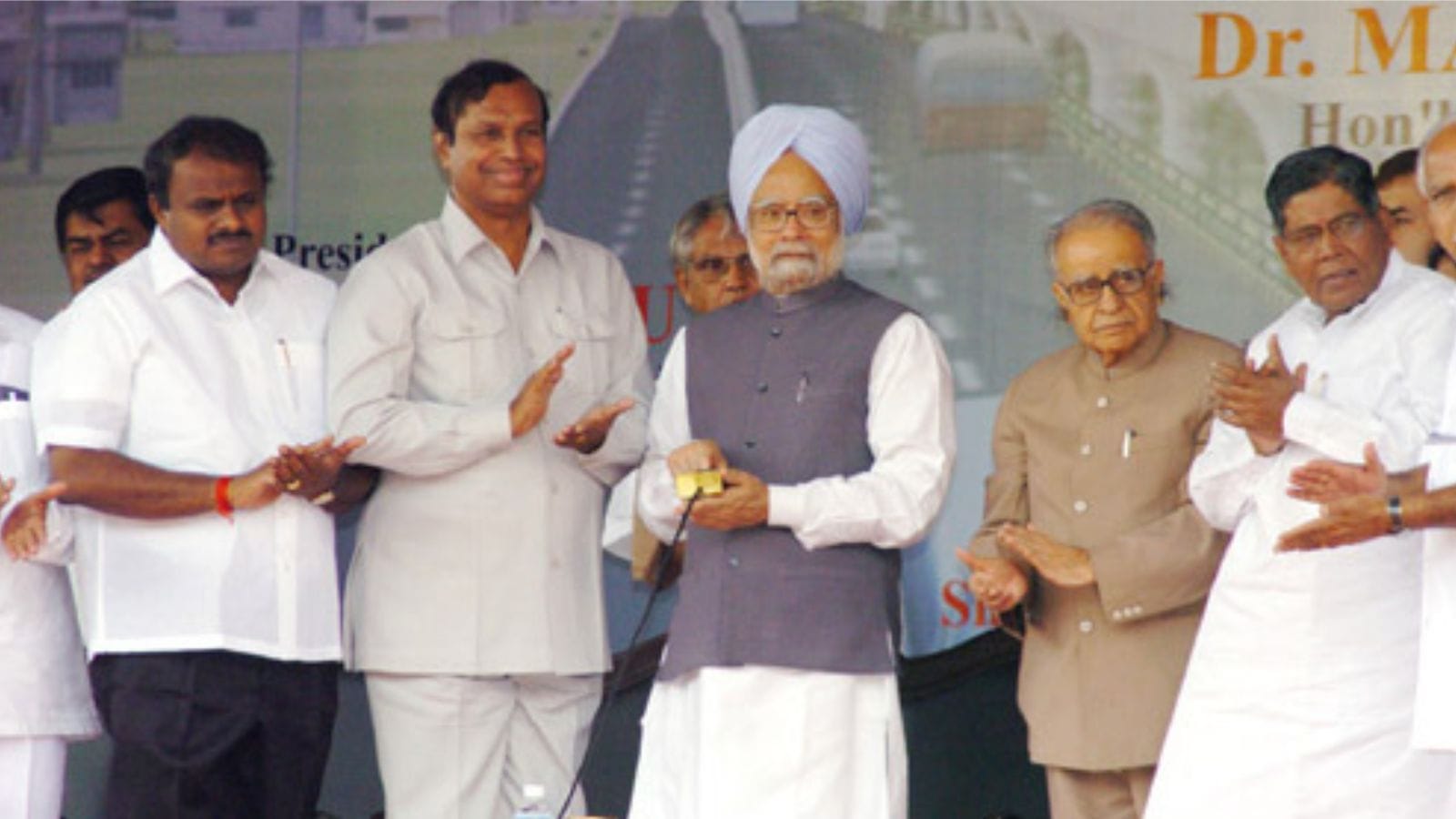 |
|
The passing of former Prime Minister Dr. Manmohan Singh marks the end of an era, one significantly shaped by his contributions to India's economic and infrastructural development. His impact on Bengaluru, now a global tech hub, is particularly noteworthy. This essay will explore the pivotal role he played in shaping Bengaluru's infrastructure, solidifying its position as a global brand, and leaving a lasting legacy on the city's development trajectory. The announcement by Karnataka's Deputy Chief Minister of a research center dedicated to Singh's financial reforms at Bangalore University serves as a fitting tribute to his enduring influence.
Singh's involvement in Bengaluru's infrastructure development was extensive and multifaceted. A key moment was the laying of the foundation stone for the Bangalore-Electronic City elevated highway in June 2006. This crucial project dramatically improved connectivity between the city's central areas and its burgeoning IT and manufacturing hub, Electronic City, home to industry giants like Infosys, TCS, and Biocon. This strategic infrastructure investment fostered economic growth and cemented Bengaluru's position as a globally competitive technological center. Beyond this singular project, Singh's administration oversaw the expansion of several national highways near Bengaluru, converting sections of NH-4 and NH-7 into four-lane roads. This improved accessibility to and from the city, significantly impacting trade, tourism, and overall economic activity.
Another significant contribution was Singh's involvement in the establishment of the Bengaluru Metro. He laid the foundation stone for the project in June 2006, a joint venture between the state and Union governments costing ₹6,000 crore. His later inauguration of the Namma Metro's initial stretch in November 2011 marked a significant step in modernizing Bengaluru's public transportation system. This initiative alleviated traffic congestion, enhanced commuting efficiency, and demonstrated a commitment to sustainable urban development. The inauguration of Kempegowda International Airport in May 2008, under Singh's tenure, further solidified Bengaluru's connectivity to the global market, significantly contributing to its growth as an international business hub. This airport, currently the third busiest in India, stands as a testament to the far-reaching impact of his leadership.
Beyond concrete infrastructure projects, Singh's visionary approach extended to fostering education and human capital development in Bengaluru and Karnataka. His invitation to teach at the Dr. B.R. Ambedkar School of Economics (BASE) in 2017 underscores his ongoing commitment to enriching the state's intellectual landscape. His earlier address to IIM Bangalore students in the 1990s, where he outlined a roadmap for economic recovery, further highlights his dedication to nurturing future leaders. These actions show a commitment not just to physical infrastructure, but also to the intellectual infrastructure necessary to sustain long-term growth and competitiveness.
Singh's profound understanding of Bengaluru's potential is perhaps best captured in his own words: "Bangalore is a global brand. People in the rest of the world know more about Bangalore than they do about India." This statement reflects both his recognition of Bengaluru's international prominence and his belief in its capacity for further growth. The infrastructural investments made during his tenure as Prime Minister played a crucial role in turning this vision into reality. The city's transformation into a global tech hub is, in no small part, a direct result of the strategic planning and decisive actions taken under his leadership.
In conclusion, Dr. Manmohan Singh's legacy in Bengaluru extends far beyond the physical infrastructure projects he oversaw. His vision, leadership, and commitment to fostering economic development and human capital significantly shaped the city's trajectory. His contributions have transformed Bengaluru into a global tech powerhouse, a testament to his understanding of the interplay between infrastructure, education, and economic growth. The research center dedicated to his financial reforms stands as a fitting memorial, ensuring that his contributions to India's economic development, and particularly his role in shaping Bengaluru's future, will continue to inspire and inform future generations.
